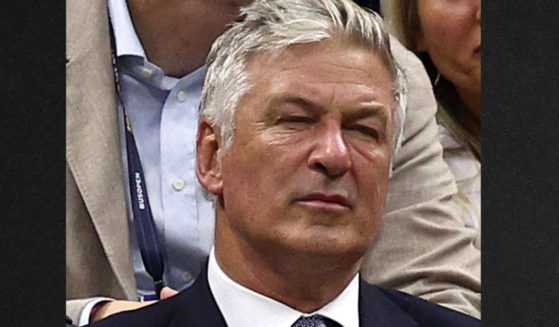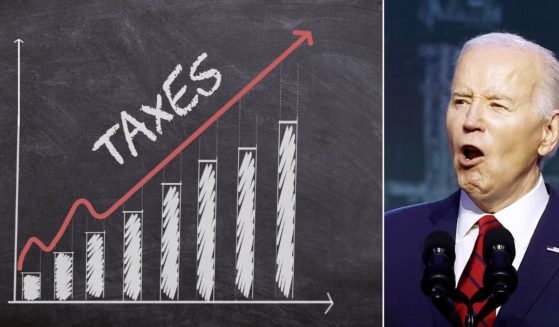NYT Columnist Says 'War on Inflation Is Over' - if You Exclude Everything People Need to Live
America’s credentialed class continues to beclown itself.
On Thursday, New York Times columnist and (drum roll, please) Nobel Prize-winning economist Paul Krugman posted an absurd “Mission Accomplished”-style declaration of victory over rising prices.
“The war on inflation is over. We won, at very little cost,” Krugman said on the X social media platform.
His accompanying graph, however, told a different story.
Krugman’s graph had the following title: “CPI ex food, energy, shelter and used cars.”
In other words, he declared victory over inflation based on a graph of the consumer price index that excluded those four items, at least three of which qualify as basic human necessities.
The war on inflation is over. We won, at very little cost pic.twitter.com/opumf3nEvL
— Paul Krugman (@paulkrugman) October 12, 2023
Understandably, Krugman’s post received “added context” via X’s “Community Notes” feature.
“The exclusion of food, shelter, energy, and used cars is misleading. All prices included in CPI shows year over year inflation at 3.7% as of September 2023,” the note read.
Krugman suffered additional chastisement and some well-earned mockery from a number of prominent conservative accounts.
“This is fantastic news for all Americans who don’t need food, a place to live, or fuel & electricity. (Note the subtitle on Krugman’s chart),” Washington Times columnist and former Trump 2020 communications director Tim Murtaugh posted.
This is fantastic news for all Americans who don’t need food, a place to live, or fuel & electricity.
(Note the subtitle on Krugman’s chart)
— Tim Murtaugh (@TimMurtaugh) October 12, 2023
Unusual Whales, a financial site with 1.4M followers on X, blasted Krugman for obvious intent to deceive.
“You excluded everything people needed to live. Come on, Paul,” it said.
You excluded everything people needed to live.
Come on, Paul.
— unusual_whales (@unusual_whales) October 12, 2023
Not the Bee, the nonsatirical sister site of the Babylon Bee, advised Krugman on how to follow best practices for deception.
“Dude if you’re going to cook your numbers at least put it as a footnote instead of in the title of the graph,” it said.
Dude if you’re going to cook your numbers at least put it as a footnote instead of in the title of the graph
— Not the Bee (@Not_the_Bee) October 12, 2023
Former California congressional candidate David Giglio thought Krugman’s own account might be a parody.
“Ahahahahahahaha this can’t be a serious post. Literally excluded the 3 most important things,” Giglio posted.
Ahahahahahahaha this can’t be a serious post. Literally excluded the 3 most important things.
— David Giglio (@DavidGiglioCA) October 12, 2023
Another user took a shot at Krugman’s credentials and suggested other motives, saying, “Paul Krugman is NOT an economist. He is an unabashed propagandist for the Biden regime.”
Paul Krugman is NOT an economist. He is an unabashed propagandist for the Biden regime.
— Shawn Quinn (@ShawnQuinn83) October 12, 2023
Apparently, the criticism made Krugman think twice about staking his credibility on a deceptive graph.
“I was too flip here. I’ve been using this particular measure for a while, so want to be consistent. But it has flaws (medical insurance too optimistic). But almost every measure now <3 percent. 1/,” Krugman posted a day later.
I was too flip here. I’ve been using this particular measure for a while, so want to be consistent. But it has flaws (medical insurance too optimistic). But almost every measure now <3 percent. 1/ https://t.co/fNN1dM42JC
— Paul Krugman (@paulkrugman) October 13, 2023
“Too flip” does not describe the real problem with Krugman’s original post.
For one thing, the economist betrayed a ruling-class elitism with which Americans have grown too familiar. No one who has endured financial hardship would ever dream of claiming victory over inflation while excluding basic necessities. That showed a lack of self-awareness that only comes with true privilege.
Second, Krugman clearly intended to deceive anyone who saw his graph. He wanted people to believe that it told a positive story when in fact it told the opposite.
The graph’s headline should have produced something like the following explanation: “If you have disposable income, things look better for you than they once did. But if you happen to be poor, things keep getting worse.”
Krugman, however, did not explain his graph’s true meaning. He even left “ex” as a shortened version of “excluding,” which made it seem that he intended the exclusion of necessities to pass unnoticed. He knew, of course, that the latter term would not convey the propaganda he intended.
Perhaps worst of all, Americans no longer trust so-called experts like Krugman.
The saddest thing about this development is that most Americans want to believe the people whom their institutions represent to them as authorities. Americans want to believe those authorities because, above all, they want to believe in merit.
Indeed, Americans would not have spent the last two centuries building colleges and universities if they did not venerate knowledge.
Krugman and too many other experts, however, lack honesty and humility, rendering their credentials meaningless.
Small wonder that so many Americans have stopped believing them.
Truth and Accuracy
We are committed to truth and accuracy in all of our journalism. Read our editorial standards.












